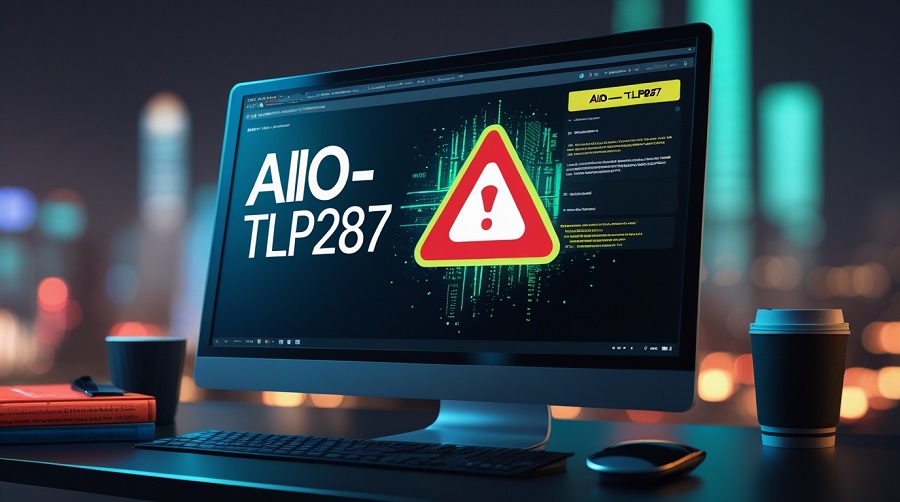The internet is full of platforms that gain attention for providing unique, often controversial, content. One such name making waves in recent times is TheJavaSea.me, a website that has attracted attention due to the leak collections it hosts. Among the various leak identifiers and data sets associated with this platform, the keyword AIO-TLP287 has emerged as a point of interest. This term has been circulating across online discussions, tech forums, and even among cybersecurity communities, making people curious about what it is, what value it holds, and how users should interpret its existence. In this article, we will explore TheJavaSea.me, dive deep into the AIO-TLP287 leaks, analyze their implications, discuss user awareness, and finally answer the most common questions surrounding the topic. By the end of this guide, you will have a comprehensive understanding of what TheJavaSea.me Leaks AIO-TLP287 truly signifies, along with valuable insights into online security and data leak trends.
Understanding TheJavaSea.me as a Platform
TheJavaSea.me is not your typical mainstream website; rather, it operates in a niche segment of the internet where leaked data collections, bundles, and digital archives are shared. Websites like this often become hotspots for people looking for aggregated content, databases, or materials that are not available through conventional sources. While some view such platforms as repositories of information, others consider them risky because they frequently host or point to sensitive, unauthorized, or controversial data sets.
Unlike entertainment platforms, TheJavaSea.me has carved its reputation as a “leak aggregator,” a place where large data sets are tagged with identifiers like AIO (All-In-One) or codes such as TLP287. These identifiers make it easier for users to navigate and locate specific collections. In a sense, the website acts as a library for data leaks, but it is not without ethical and legal concerns. Understanding the site’s role is the first step toward analyzing the AIO-TLP287 leaks and what they might mean for individuals and organizations.

What Does AIO-TLP287 Mean?
The keyword AIO-TLP287 is intriguing because it combines two elements: “AIO” and “TLP287.” In the context of leak repositories, AIO usually stands for “All-In-One,” suggesting that the data bundle or leak collection is comprehensive, covering multiple types of files, resources, or accounts. It signals to users that instead of isolated information, they are dealing with a broad package of data that may span across different categories such as user credentials, internal files, documents, or multimedia.
The second part, TLP287, functions more like an internal code or tag assigned to the specific leak. This code helps distinguish one dataset from another in an ecosystem where multiple leaks exist simultaneously. While on the surface it may seem like a random identifier, it plays a crucial role for communities who track, discuss, and share these leaks, making it easier to pinpoint discussions and references about the exact dataset. Together, AIO-TLP287 represents a specific, all-encompassing leak set that has gained traction within TheJavaSea.me archives.
The Significance of TheJavaSea.me Leaks AIO-TLP287
The rise of TheJavaSea.me Leaks AIO-TLP287 highlights several realities of the digital age. First, it underscores how accessible leaked data has become to the public. Years ago, leaks were often hidden in underground forums, but platforms like TheJavaSea.me bring them closer to wider audiences. Second, the identifier AIO-TLP287 suggests that this is not just a minor release but a significant all-in-one bundle, which explains why it is being discussed across various online channels.
From the perspective of cybersecurity, the presence of such leaks poses major risks. If AIO-TLP287 includes sensitive data, users exposed in the leak may face identity theft, account breaches, or financial loss. Organizations may suffer reputational damage or compliance violations if their data is included. From a consumer point of view, curiosity often drives people to explore these leaks, but they should understand that interacting with such content can be harmful, both legally and in terms of personal security.
Why People Search for AIO-TLP287
A big question is why terms like AIO-TLP287 become so popular in search engines. The primary reason is curiosity. Internet users, upon encountering the phrase in forums or social media, search for more information to satisfy their interest. Some individuals are security researchers or journalists trying to understand the scope of the leak. Others are ordinary users who may have stumbled upon discussions and want to know whether their own data is at risk.
Additionally, digital trends often amplify obscure keywords. Once a dataset like AIO-TLP287 is mentioned on Twitter, Reddit, or niche Discord groups, it gains momentum and starts appearing in search results. This viral curiosity ensures that more people are drawn into the subject, increasing the visibility of TheJavaSea.me leaks overall.
The Risks of Accessing TheJavaSea.me Leaks
While it may sound interesting to explore a platform like TheJavaSea.me, it is important to understand the risks associated with engaging with such leaks. Firstly, many of the files hosted or linked through these sites may contain malware or spyware, exposing visitors to infections. Cybercriminals often disguise malicious software within leaked archives, hoping that curious users will download them.
Secondly, depending on the content of AIO-TLP287, users may be accessing stolen or unauthorized data. This not only raises ethical questions but could also lead to legal consequences. For example, if the dataset includes copyrighted material, intellectual property, or private user information, accessing or distributing it may violate laws. Finally, there is the risk of personal exposure. By visiting or downloading content from suspicious platforms, users may inadvertently reveal their own IP address or browsing behavior, making themselves targets for attacks.
Cybersecurity Lessons from AIO-TLP287
Instead of viewing TheJavaSea.me Leaks AIO-TLP287 purely as a source of curiosity, it is more constructive to see it as a lesson in cybersecurity awareness. The existence of such leaks highlights the importance of protecting personal and organizational data. Users should always follow basic practices such as using strong, unique passwords, enabling two-factor authentication, and being mindful of what information they share online.
For businesses, AIO-TLP287 serves as a reminder of the need for regular security audits, employee training, and compliance with data protection regulations. It demonstrates how quickly leaks can spread and how difficult it becomes to contain information once it has been published online. Proactive measures are far more effective than reactive damage control when it comes to leaks and breaches.
How Media and Communities Respond to Leaks
The circulation of identifiers like AIO-TLP287 also shows how online communities react to leaks. On one hand, there are researchers and ethical hackers who analyze the data to inform the public or alert organizations. On the other hand, there are communities that thrive on sharing such leaks for entertainment or financial gain. Platforms like YouTube or TikTok may even amplify these discussions, though often in vague terms to avoid legal issues.
Media outlets also play a role in shaping public perception. While some may highlight the dangers of these leaks, others sensationalize them to attract clicks. This makes it important for readers to critically evaluate sources and rely on trusted cybersecurity voices rather than unverified rumors.
Future of Leak Platforms Like TheJavaSea.me
Looking forward, platforms like TheJavaSea.me will continue to exist as long as there is demand for leaked data. The presence of identifiers like AIO-TLP287 shows that such leaks are systematically categorized and archived, meaning that this trend will not fade away soon. However, as governments and organizations strengthen cybersecurity laws, the risks of running or using such sites will increase.
For users, the best course of action is to remain vigilant and informed. Leaks may always surface under different identifiers, but individuals can reduce their risk by practicing strong cybersecurity hygiene. For researchers, the challenge will be to balance the need for transparency with the responsibility of not amplifying harmful content.
Conclusion
The rise of TheJavaSea.me Leaks AIO-TLP287 is more than just another digital curiosity—it is a mirror reflecting the complex, often dangerous reality of our interconnected world. While some may see it as just a code or a mysterious data bundle, its significance stretches far beyond. It represents the growing accessibility of leaks, the ease with which sensitive information can spread, and the constant tension between digital freedom and cybersecurity threats.
For individuals, it is a wake-up call that online safety cannot be ignored. Simple steps like stronger passwords, two-factor authentication, and cautious browsing habits can make the difference between security and vulnerability. For organizations, AIO-TLP287 underscores the urgent need for robust data protection strategies, proactive monitoring, and a commitment to building digital trust.
In the end, the question is not just about what AIO-TLP287 contains, but about what it teaches us. Every leak reminds us that data once exposed is nearly impossible to control. The best defense lies in prevention, awareness, and resilience. As users and as a society, we must decide whether to remain passive observers of leaks—or to learn from them and build a more secure digital future.
Frequently Asked Questions (FAQs)
1. What is TheJavaSea.me?
TheJavaSea.me is a website known for aggregating and sharing leak collections, often labeled with codes like AIO-TLP287. It operates in a niche internet space focused on digital leaks and archives.
2. What does AIO-TLP287 represent?
AIO-TLP287 refers to a specific all-in-one leak bundle hosted or indexed by TheJavaSea.me. “AIO” stands for All-In-One, while “TLP287” is the identifier code.
3. Is it safe to access TheJavaSea.me leaks?
No, it is not considered safe. Such leaks may contain malware, spyware, or stolen information, posing risks to users’ devices, privacy, and legal standing.
4. Why are people interested in AIO-TLP287?
People search for AIO-TLP287 out of curiosity, to check if their data is exposed, or to learn about cybersecurity trends. Viral discussions on social media also drive its popularity.
5. What should I do if I suspect my data is in a leak like AIO-TLP287?
If you believe your data is exposed, change your passwords immediately, enable two-factor authentication, and monitor your accounts for suspicious activity. In severe cases, consider credit monitoring services.



